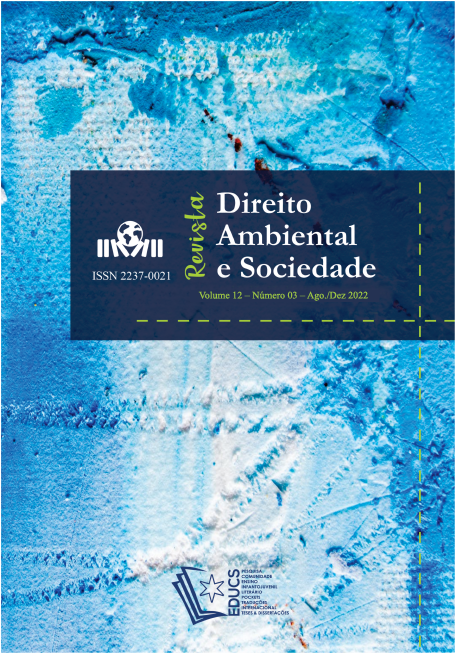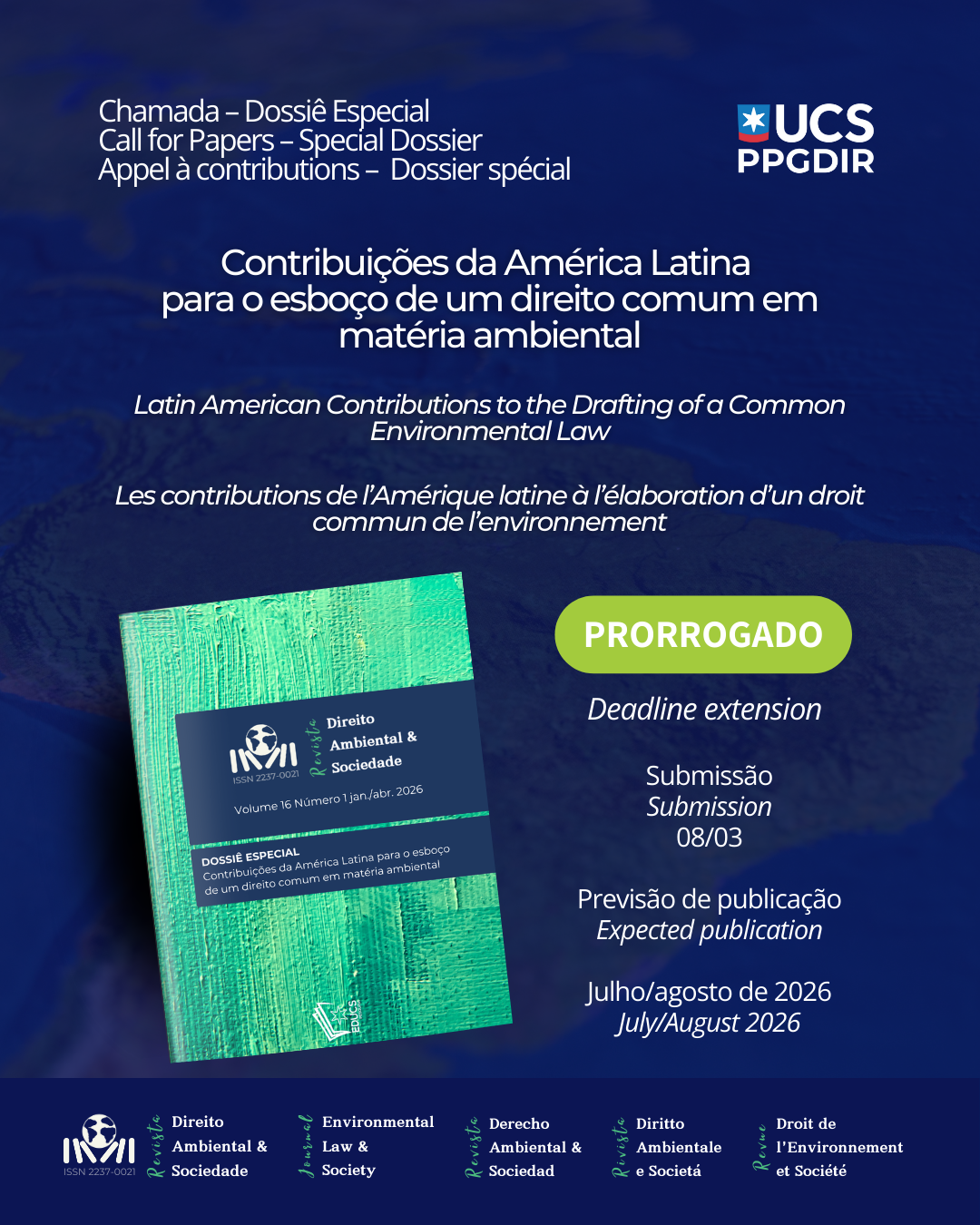A TUTELA JUDICIAL DO PRINCÍPIO DA VEDAÇÃO DO RETROCESSO AMBIENTAL: O CASO DO USO DE PNEUMÁTICOS NA MASSA ASFÁLTICA NO ESTADO DE MINAS GERAIS
DOI:
https://doi.org/10.18226/22370021.v12.n3.20Palabras clave:
Direito ambiental, Pneus inservíveis, Massa asfáltica, Princípio da vedação do retrocesso ambiental, Princípio da Sustentabilidade, Princípio da prevenção, Princípio da precauçãoResumen
O estudo aborda a utilização do composto advindo de pneus inservíveis na massa asfáltica para garantir o efetivo direito de todos de usufruir da higidez ambiental através de ações sustentáveis a fim de evitar ou pelo menos minimizar os impactos sobre o meio ambiente e na saúde da população gerados a partir do descarte desses pneus. O objetivo é demonstrar a importância do cumprimento da lei para a qualidade do meio ambiente, sua sustentabilidade e para o exercício de uma vida digna para as presentes e futuras gerações. A pesquisa é predominantemente bibliográfica e documental. As metodologias adotadas foram a dedutiva, porque, a partir de certas premissas, serão construídas conclusões sobre a temática apresentada, respeitando-se uma estrutura lógica de pensamento, e a crítico-dialética, porque a exposição estimula o diálogo teórico e a reflexão acerca do tema proposto. Como resultados alcançados verificou-se a partir de estudo de caso ocorrido no Estado de Minas Gerais, que não obstante haver legislação determinando a preferência do emprego do asfalto borracha nos licenciamentos para construção de asfaltos, tal mandamento não vem sendo cumprido, infringindo de forma displicente, os princípios da prevenção, precaução, vedação de retrocesso socioambiental e o princípio da sustentabilidade, além do risco às presentes e futuras gerações, que se revelam imediatos.
Descargas
Descargas
Publicado
Cómo citar
Número
Sección
Licencia
Derechos de autor 2023 Revista Direito Ambiental e Sociedade

Esta obra está bajo una licencia internacional Creative Commons Atribución 4.0.
Você tem o direito de:
Compartilhar — copiar e redistribuir o material em qualquer suporte ou formato para qualquer fim, mesmo que comercial.
Adaptar — remixar, transformar, e criar a partir do material para qualquer fim, mesmo que comercial.
O licenciante não pode revogar estes direitos desde que você respeite os termos da licença.
De acordo com os termos seguintes:
Atribuição — Você deve dar o crédito apropriado , prover um link para a licença e indicar se mudanças foram feitas . Você deve fazê-lo em qualquer circunstância razoável, mas de nenhuma maneira que sugira que o licenciante apoia você ou o seu uso.
Sem restrições adicionais — Você não pode aplicar termos jurídicos ou medidas de caráter tecnológico que restrinjam legalmente outros de fazerem algo que a licença permita.
Avisos:
Você não tem de cumprir com os termos da licença relativamente a elementos do material que estejam no domínio público ou cuja utilização seja permitida por uma exceção ou limitação que seja aplicável.
Não são dadas quaisquer garantias. A licença pode não lhe dar todas as autorizações necessárias para o uso pretendido. Por exemplo, outros direitos, tais como direitos de imagem, de privacidade ou direitos morais , podem limitar o uso do material.















